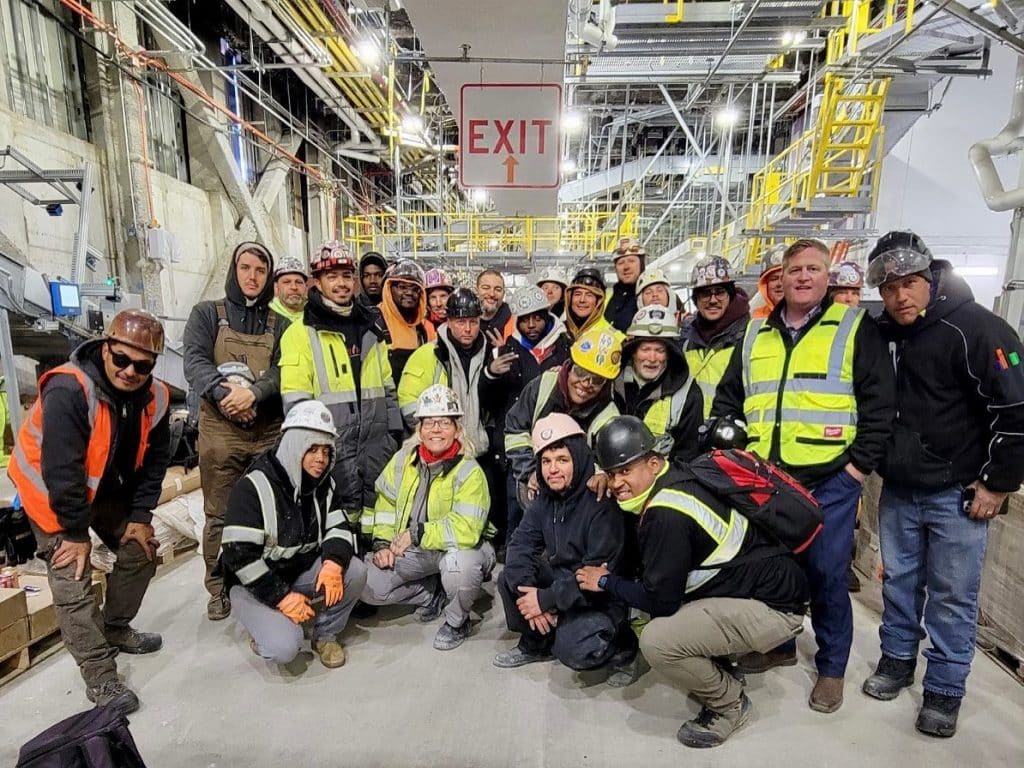
In 2021, SMART, SMACNA and ITI came together to launch Belonging and Excellence for ALL (BE4All). BE4All is a bold, multi-year effort to transform the sheet metal industry, and to do this in two ways:
1) By creating work environments and jobsites that are welcoming to ALL workers and contractors;
2) by helping workers and contractors achieve the highest standards of performance and excellence with respect to their trades or crafts.
To make this vision a reality, BE4All has adopted several strategies. One is the use of micro-affirmations. Micro-affirmations are small — but important — ways that we can acknowledge the humanity, dignity and worth of others.
Below are nine micro-affirmations that we encourage you to practice as often as possible, and with as many people as possible. These practices can be used in the workplace, and we can also practice them in our personal lives.
1. Name recognition. Asking a person for their name, and then remembering and repeating the name later (whether it’s five minutes or five days), is one of the most powerful ways that we can signal to another person “I see you.” “You matter.”
2. Life events. Inquire about important events in people’s lives. These include birthdays, anniversaries and important holidays. Record these dates in your calendar. Then, when the dates arrive, take a moment to acknowledge them by sending a card, email or text. Or simply say to the person, “Happy Birthday!”
3. Feedback and affirmation. Take time to give other people feedback (positive or otherwise). But remember, for feedback to be effective, it needs to be specific and genuine. It’s also important that you have enough of a relationship with the other person that they’ll be open to receiving what you have to say.
4. Shout outs and public recognition. It’s great to praise people in private. But it’s even better to give public recognition. It can be as simple as saying: “Joe, that was incredible work you did yesterday.” Or, “Melissa, thank you for everything you’re doing to make us a stronger team.”
5. The daily greeting. Pause, every day, to simply say, “Good morning!” and ask another person, “How are you?”
6. Interacting versus transacting. But it’s not enough to ask another person, “How are you?” We must then take time to truly listen/hear how the other person is doing, and be willing to share our own response to this question.
7. Inviting feedback. We mentioned the importance of giving feedback to others. Another way to practice micro-affirmations is to invite another person to give us feedback. This can be as simple as saying, “Joye, would you be willing to share three things I do well? And three areas where you think I can do better?”
8. Life goals. Take time to learn about another person’s life goals, whether it be work or personal. These goals may include going back to school or seeking a higher position. Then look for ways to support these goals. This can be in the form of sharing an important resource or piece of information, or connecting the person with someone you know who can help them in their pursuit.
9. Presence and attention. Finally, be 100% present for other people. Simply put, this means giving another person our non-rushed and undivided attention when interacting with them. One powerful way to do this is to silence your cell phone during conversations (individual or group). And to avoid looking at or touching your phone throughout conversation.
Related News
- Special Focus: SMART sisters “Let the Good Jobs Roll” at Tradeswomen Build Nations 2024
- Time to stand united
- Solidarity now, solidarity forever
- A united front
- Canadian Affairs Update: Jack Wall named new director
- Amtrak pays tribute to fallen workers
- Local 55 member details union pride for BE4ALL challenge
- Local 18 retiree wins Union Plus award
- Apprentices display union craftsmanship during 51st Ontario Sheet Metal Workers Apprenticeship Competition
- Stand against rhetoric designed to divide workers